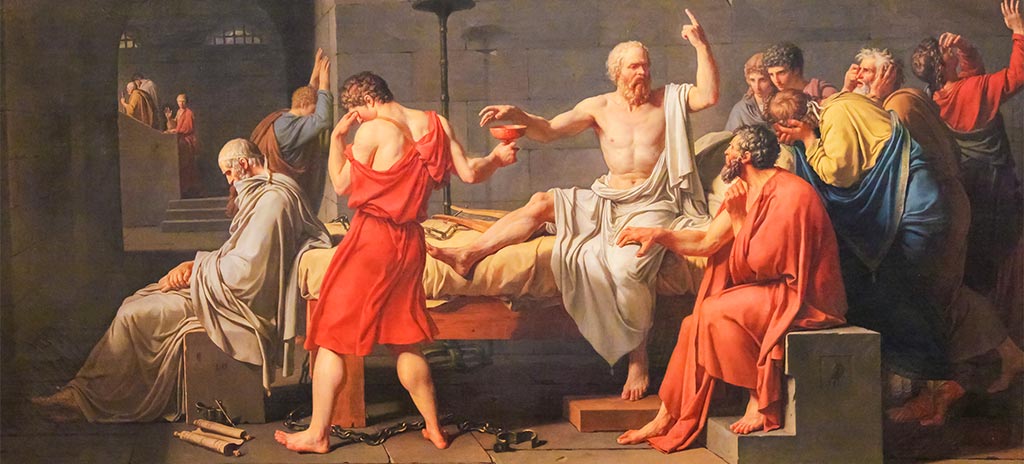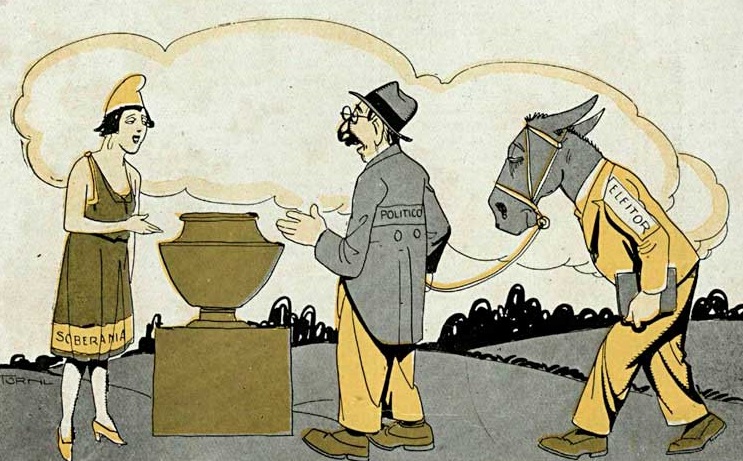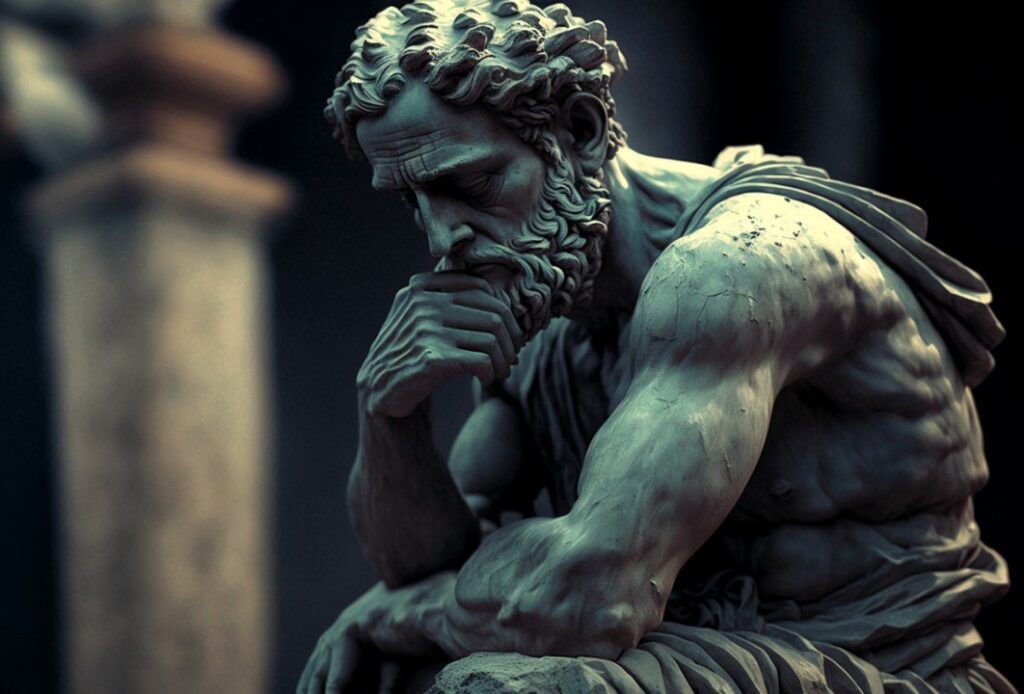The Life of Socrates

Socrates was born in Athens in 469 BC. His parents were ordinary people, his father was a sculptor and his mother worked as a midwife. During his youth, Socrates had contact with several philosophers who visited Athens to participate in festivals, but his interest in philosophy is an open question. What we know about his education is that he received training common to men of his time, including literacy, writing, sports and music.
When Socrates turned 18, his father introduced him to a ceremony called “dokimasia,” making him a citizen and eligible for government duties according to his social class. After this period, Socrates completed his mandatory military service, and his military life was notable for its endurance and ability to withstand adverse conditions, demonstrating his commitment to the idea that well-cultivated reason could control all aspects of human life.
Socrates and the Absence of Books
Surprise… Socrates never wrote a single book!

One of the curiosities about Socrates is that, despite his importance in the history of philosophy, he did not leave any books written in his name. The reason for this is that Socrates believed in orality as a means of transmitting knowledge. He preferred direct dialogue with his students and interlocutors rather than recording his thoughts in writing. Socrates even had extremely critical attitudes towards writing.
He believed, for example, that writing could weaken memory and critical thinking. This attitude toward writing may seem surprising in an era when writing is so valued, but it demonstrates the importance of interpersonal communication and direct philosophical debate.
The Importance of Plato

We can say that we only know Socrates today because of Plato, one of Socrates' greatest disciples. Plato wrote several dialogues in which Socrates is the main character, conveying the teachings and philosophical conversations he had with his master.
These dialogues, such as “The Republic” and “Phaedrus,” offer deep insights into the philosophy of Socrates and his unique approach to the pursuit of truth. Although Plato wrote the works, they are widely considered to be reliable sources for understanding Socrates' philosophy.
The 5 Best Books about Socrates
Since we discovered that Socrates didn't write a single book, let's make a list of the five best books who talk about Socrates! This is our list:
- “Apology of Socrates” – Plato: In this Platonic dialogue, Socrates presents his self-defense during his trial and examines his philosophy and his bond with the city of Athens. You can find it for free in the references, the book is already in the public domain.
- “Memorables” – Xenophon: Xenophon, another follower of Socrates, composed a collection of dialogues and narratives that provide a unique perspective on Socrates' life and education. You can find it for free in the references, the book is already in the public domain.
- “Socrates – Inspirations for life” – Clóvis de Barros Filho: An analysis of our everyday lives based on the life and work of Socrates.
- “Socrates: A Brief Introduction” – Christopher Taylor: This book is great for philosophy beginners and explores the philosophy of Socrates in simple language.
- “10 Lessons from Socrates” – Paulo Ghiraldelli Junior: A great “fast-food” (quick read) of Socratic philosophy.
FAQs
- Did Socrates leave any writings? No, Socrates did not leave any book written in his name.
- Who were Socrates' main disciples? Socrates' main disciples were Plato and Xenophon.
- What is Socrates' method of questioning? Socrates' method of questioning is known as “maieutics” and involves asking questions to stimulate critical thinking.
- What are Plato's dialogues that feature Socrates as the main character? Some of Plato's dialogues that feature Socrates are “The Apology of Socrates” and “Phaedrus”.
- How important is Plato in understanding Socrates? Plato plays a key role in transmitting Socrates' teachings and philosophy through his writings.
References
Apology of Sócrates.PDF (usp.br)



